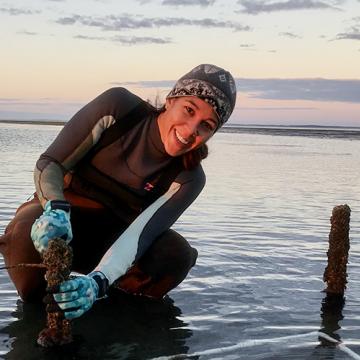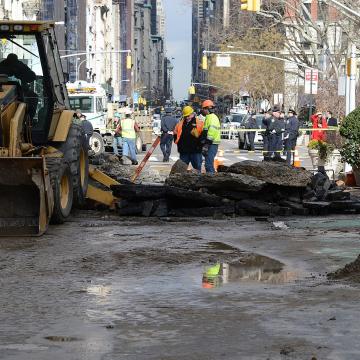-
NewsA trove of lithium-rich brine exists underground in Bolivia. Researchers conducted the first comprehensive chemical analysis of wastewater associated with mining the resource.
-
NewsUrban ecologists developed a new approach to understanding biodiversity patterns in cities. The work could inform efforts to improve access to nature’s benefits.
-
NewsPh.D. students Keqi He, Rafaella Lobo honored for their respective scholarship.
-
NewsMeet the Patino-Echeverri Lab, learn more about its research focus, lab member's experiences in the lab and the opportunities the lab offers Duke students.
-
NewsMeet the Silliman Lab, learn more about its research focus, a PhD student's experience in the lab and the opportunities the lab offers Duke students.
-
NewsAs the world endeavors to extricate itself from a carbon economy in favor of clean energy, Lee Ferguson is working to shed light on the potential environmental risks posed by bis-perfluoroalkyl sulfonimides, a primary electrolyte in lithium-ion batteries.
-
NewsAs the world undergoes the great energy transition — from fossil fuels to alternative energy and batteries — rare earth metals are becoming more precious.
-
NewsMaintaining a water level between 20 and 30 centimeters below the local water table will boost southern peatlands’ carbon storage and reduce the amount of greenhouse gases they release back into the atmosphere during dry periods by up to 90%, a Duke University study finds.
-
NewsA new Duke University study finds that municipal waste incinerators' legacy of contamination could live on in urban soils.
-
NewsBrian R. Silliman, Rachel Carson Distinguished Professor of Marine Conservation Biology at Duke University’s Nicholas School of the Environment, has been elected a Fellow of the Ecological Society of America (ESA).
-
-
NewsThe National Science Foundation and the Paul G. Allen Family Foundation have awarded a $1.2 million grant to support a new initiative aimed at boosting ecosystem restoration and climate resilience along North Carolina’s coast.
-
NewsKnowing voters have seen news reports about problems caused by failing or outdated public infrastructures in their district makes local officials who face competitive re-elections more inclined to support new spending to repair or replace the aging structures, a survey of city and county officials in 49 states shows. Findings from the survey by Duke University and the Environmental Policy Innovation Center underscore the continued importance of local media even as newsrooms shrink nationwide.
-
NewsFossil-fueled electrical grid’s enormous water use is often overlooked.
-
NewsRewetting and restoring 250,000 acres of southern pocosin peatlands that had been drained for farming but now lie fallow could prevent 4.3 million tons of climate-warming carbon dioxide, now stored in their soils, from oxidizing and escaping back into Earth’s atmosphere each year, a Duke University study shows. That amount equals 2.4% of the total annual reductions in CO2 emissions needed for the United States to be carbon neutral by 2050.














